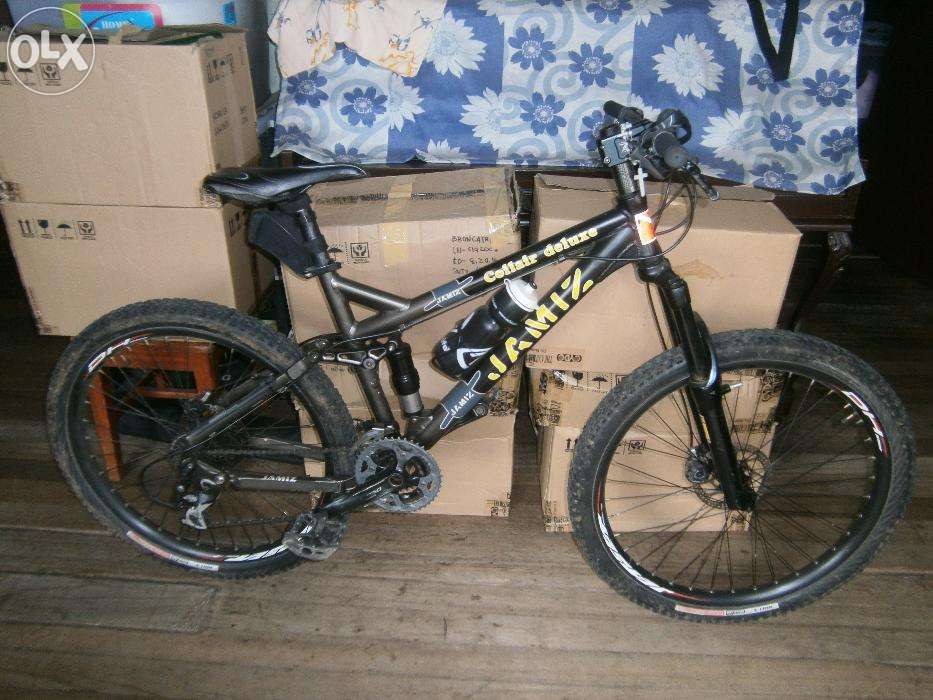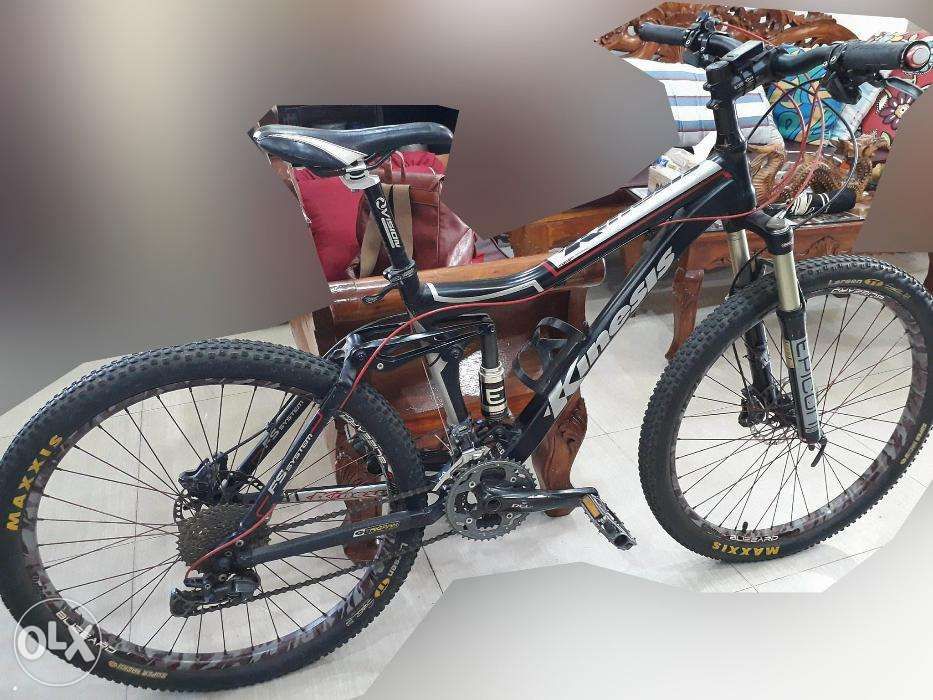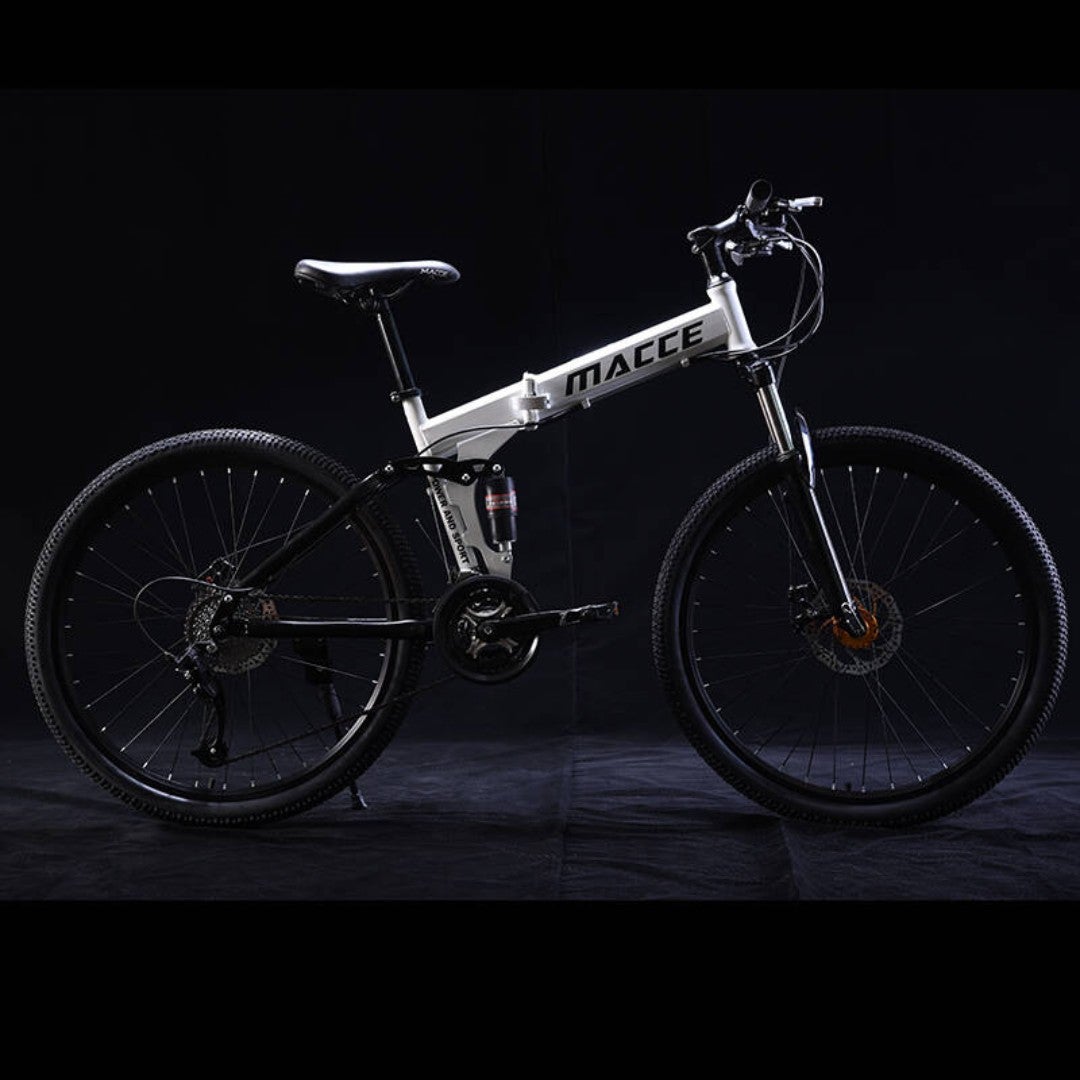 "Wheelerguy" (wheelerguy)
"Wheelerguy" (wheelerguy)
04/23/2018 at 10:47 ē Filed to: Mountain Bike, Bikelopnik
 1
1
 15
15
 "Wheelerguy" (wheelerguy)
"Wheelerguy" (wheelerguy)
04/23/2018 at 10:47 ē Filed to: Mountain Bike, Bikelopnik |  1 1
|  15 15 |

Hereís !!!error: Indecipherable SUB-paragraph formatting!!! (about $535).

Hereís
!!!error: Indecipherable SUB-paragraph formatting!!!
(about $680).

And finally,
!!!error: Indecipherable SUB-paragraph formatting!!!
(about $135).
Makes me think...
 OPPOsaurus WRX
> Wheelerguy
OPPOsaurus WRX
> Wheelerguy
04/23/2018 at 10:50 |
|
I would not want a folding mountain bike. I want a full suspension but want a lockout on the rear which is well past my current non existent budget
 Wheelerguy
> OPPOsaurus WRX
Wheelerguy
> OPPOsaurus WRX
04/23/2018 at 10:54 |
|
Well I mean itís not like Iíd buy a bike for super-serious trail-hopping, just a springy bike that can tank the battered roads here in Manila and some ragging about while still staying solid.
 Cash Rewards
> OPPOsaurus WRX
Cash Rewards
> OPPOsaurus WRX
04/23/2018 at 10:55 |
|
Unless youíre really in the mountains you donít need full suspension, IMO. More bang for your buck with hardtails. And hell no to folding bike.
 LOREM IPSUM
> Wheelerguy
LOREM IPSUM
> Wheelerguy
04/23/2018 at 11:21 |
|
Is that a knock-off Jamis?
 TheRealBicycleBuck
> Wheelerguy
TheRealBicycleBuck
> Wheelerguy
04/23/2018 at 11:26 |
|
As I told you before, cheap will not last. Check the weight and check the list of components. Bottom end of name brand is ok, off brand will be damn near impossible to replace when it breaks.
 Cash Rewards
> LOREM IPSUM
Cash Rewards
> LOREM IPSUM
04/23/2018 at 11:32 |
|
Ha! Didnít notice that first glance.
 Spanfeller is a twat
> Wheelerguy
Spanfeller is a twat
> Wheelerguy
04/23/2018 at 14:38 |
|
If youíre using it mostly on road, as youíve said before, Iíd get a hard tail bike, probably a trek or a cheap Specialized will do (if youíre already looking at prices ~600 dollars that is). I went through a similar ordeal as you did (and for a bike in a city with shitty roads) and I was always recommended a hard tail. Full suspension bikes are heavy, complex, and more expensive, ride quality doesnít improve that much either.
However, fear not local bikes, as long as the frame is strong, and youíre not doing downhill daily they will last ages, I have an Alubike which is a Mexican brand and it has lasted over 6 years; two of which had daily use and abuse, only replacement parts Iíve had to source are tires and a chain. However, when talking about components that wear out do make sure those brands are established and available easily, like shimano parts for the gears.
 Spanfeller is a twat
> Cash Rewards
Spanfeller is a twat
> Cash Rewards
04/23/2018 at 14:52 |
|
Folding bikes are exclusively for Hipsters who will carry those into the Metro three times until they realize itís heavy as fuck and everyone hates them for bringing it along.
 Nom De Plume
> Wheelerguy
Nom De Plume
> Wheelerguy
04/23/2018 at 17:19 |
|
Wheelerguy, I did some poking around and it looks like you have good access to parts and used frames. Let me poke some holes in your plan for rough road use around a larger city.
Get a used 26" hardtail frame made to use a 100mm suspension fork. Which should be of good quality and have either lockout or good adjustability. A cheap FS mtb is going to be unusable on the road or otherwise. So much monkey motion and lost energy to bouncing around every time you stand/brake/accelerate/turn/move at all you could hardly move and steer. Especially on the road. Put Shimano Acera or slightly better on it.
Most importantly. GOOD WHEELS and a GOOD SEAT. Decent knobless tires with reflective sidewalls for the wet roads will help considerably as well. You want to be visible and have a large reflective profile from all sides on the road.
 TheRealBicycleBuck
> Spanfeller is a twat
TheRealBicycleBuck
> Spanfeller is a twat
04/23/2018 at 18:25 |
|
Three notable exceptions: Brompton , Dahon , and Moulton . It should also be noted that most of their offerings use small wheels and only elastomer suspension for the rear triangle.
 Spanfeller is a twat
> TheRealBicycleBuck
Spanfeller is a twat
> TheRealBicycleBuck
04/23/2018 at 19:03 |
|
Bromptons are niceeeeeee. But I wouldnít get a folding bike really... I like my bikes with big wheels and very sturdy.
 TheRealBicycleBuck
> Spanfeller is a twat
TheRealBicycleBuck
> Spanfeller is a twat
04/23/2018 at 19:58 |
|
With the same rim cross-section and spoke size, s maller wheels are stronger than larger wheels. With the same tube cross section, s maller frames are stronger than larger frames. As an aspiring engineer, you should know these things!
If you donít believe that small-wheeled bikes can be used for touring, think again .
The weak point on a folding bike is the hinge. Thatís why Moultons are take-apart, not folding.
 Spanfeller is a twat
> TheRealBicycleBuck
Spanfeller is a twat
> TheRealBicycleBuck
04/23/2018 at 20:02 |
|
Oh yeah, you can tour on those! But itís probably a bit inconvinient. When I said sturdy I meant the frame really... I have noticed bigger wheels are a bit more fragile than the smaller ones on my Alubike, canít tell if those are 26.5 or 27, however, the bigger wheels feel more stable because those spin slower than smaller tires to cover the same distance.
 TheRealBicycleBuck
> Spanfeller is a twat
TheRealBicycleBuck
> Spanfeller is a twat
04/23/2018 at 20:29 |
|
You are right, larger wheels are more stable, but that also means they are less agile. Itís not just a matter of size, itís also a matter of rotating weight. Larger wheels have more rotating mass. This makes rolling over small obstacles somewhat easier. On the tight trails I used to ride where agility was key , 26" wheels are the better option. Also, wheels should match the frame size. A small frame (<50 cm) isnít really big enough to accommodate a 29" wheel.
As for the frame, a smaller frame is going to be stronger too. The weak points on a really small frame are the extra-long seat post and steering tube.
 Spanfeller is a twat
> TheRealBicycleBuck
Spanfeller is a twat
> TheRealBicycleBuck
04/23/2018 at 21:14 |
|
Certainly less agile, and a pain in the ass to load into my jeep!
However, I donít really do trail, other than cycling around the park anyway, so 29" wheels suit my fast habits, and rotating mass is a two way ticket, bigger wheels means (usually) more inertia, meaning that they hold their rotational velocity for longer, meaning that keeping speed with traffic isnít as hard.
As for braking though, it is tougher, but Iíve got hydraulic brakes that can take some abuse.